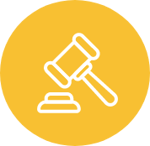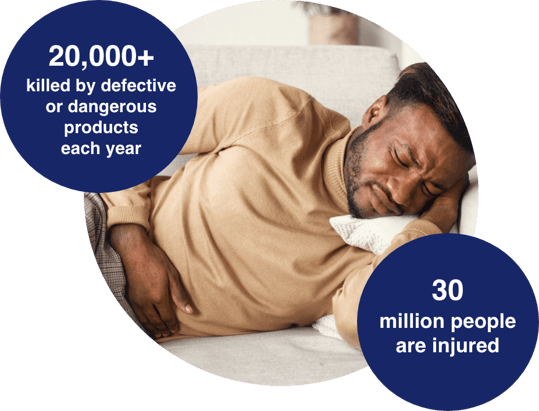Were you or a loved one harmed by a defective or dangerous product?
Finding an experienced lawyer with the right background is crucial.
Our Georgia attorneys specialize in securing compensation for injury victims across Georgia.
Under Georgia’s personal injury law, individuals and companies can be held liable for damages if their negligent actions cause another person or group of people physical, emotional or financial harm. For example, if someone runs a red light and kills someone in a fatal car accident, they can be sued for wrongful death damages.
Likewise, manufacturers, sellers, vendors and other companies have a legal responsibility to ensure that their products are safe for public use and general consumption. If someone is injured or gets sick as a result of a dangerous product or a failure to warn , the company that profited from selling that product can be required to pay for the victim’s medical expenses, lost wages, pain and suffering and other damages.
The term “products” can encompass everything from vehicles and parts, industrial and construction equipment, clothing, tools, home appliances and children's toys, to prescription drugs, medical devices and food and beverages. Essentially, any item you purchase from another individual or company is a product.
Perhaps the most infamous example of a product liability claim is the 1994 McDonald’s hot coffee case (Liebeck v. McDonald’s Restaurants), where a 79-year-old woman sustained third-degree burns after accidentally spilling hot coffee from McDonald’s in her lap. She was in the hospital for 8 days and underwent skin grafting, then required 2 years of medical treatment.
In addition, here are some of the biggest and most extensive product liability cases in the U.S. that have resulted in significant compensation for plaintiffs:
- ● Transvaginal mesh lawsuits
- ● 3M hearing loss lawsuits
- ● Takata defective airbag lawsuits
- ● Monsanto Roundup lawsuits
- ● Johnson & Johnson talcum powder cancer lawsuits
- ● Cigarette lung cancer lawsuits
- ● Dow Corning silicone breast implant lawsuits
- ● Owens Corning asbestos building material lawsuits
- ● Faulty GM gas tank lawsuits
- ● DePuy hip implant lawsuits
If you were seriously injured by a defective or unsafe product, or someone you love was harmed or killed by a product defect, it's imperative that you seek legal advice from an experienced and knowledgeable attorney immediately. Time is of the essence in these complex cases, so contact our Georgia product liability attorneys as soon as possible to take the next step in protecting your rights.

Types of defective product liability claims
Products can be considered defective or dangerous for many reasons, but most product liability claims fit into the following 3 categories:
Defective manufacturing
Defectively manufactured products contain some flaw or error that occurred during the manufacturing process. In other words, the defective product is different from what the manufacturer intended. One of the most well-known examples of defective manufacturing is the Takata airbag recall, which is considered one of the largest airbag recalls in history. The defective airbags, which were linked to 150 injuries and 11 deaths, exploded upon impact due to a faulty propellant canister.
Defective design
Defectively designed products are inherently dangerous in the way it was intended to be used. Design defects differ from manufacturing defects in that all of the products in that line are dangerous or defective, not just 1 item that was incorrectly manufactured. For example, medical device makers of transvaginal mesh implants have faced numerous lawsuits over claims that mesh intended to help treat incontinence and prolapse caused some patients to develop vaginal scarring and sharp pains.
Failure to warn
When a manufacturer, seller or other company fails to provide adequate instructions or warnings on how to properly use its product, then the company can be held liable under product liability law. One recent example of this type of claim is the talcum powder cancer lawsuits, where pharmaceutical company Johnson & Johnson failed to warn consumers that their talcum powder contained the dangerous property asbestos, despite knowing it was a potential hazard.
Suing Big Pharma: Defective medical devices and unsafe drugs
Lawsuits against pharmaceutical companies and medical device manufacturers are a special category of product liability claims that require unique expertise and knowledge. This is because pharmaceutical companies and medical manufacturers have deep pockets to dispute such claims or litigate plaintiffs into submission.
What’s more, pharmaceutical and medical device companies tend to be more motivated to fight injury claims because of the risk that 1 successful case or settlement could trigger an avalanche of related claims and class action lawsuits from other patients adversely affected by the unsafe drug or defective biomedical product, not to mention the bad press the company would receive.
In short: Product liability claims involving pharmaceutical and biomedical product companies tend to be more complicated, more expensive, and more intensely disputed.

How to prove a product liability cases
Regardless of the type of product liability claim you have, it will be your responsibility (or your attorney’s responsibility, should you hire one) to provide convincing evidence that the product in question was defective or unreasonably dangerous in some way. You will also will have to prove that you were harmed by its defective condition.
In addition, you’ll have to determine who is liable for your injuries and damages. In many cases, the product manufacturer (or company that made the product) is liable for a defect or failure to warn. However, other parties may hold some degree of responsibility as well, such as the wholesaler, distributor or retailer.
The good news for victims of defective products in Georgia is that most product liability cases are based on the legal theory of strict liability. This differs from most personal injury lawsuits, which are based on negligence, in several important ways—one of which is that no determination of fault is required.
Rather, plaintiffs merely need to prove the following 3 elements:
1. The defendant manufactured the defective product
2. The product was defective when it left the manufacturer’s hands, and
3. The product’s defect directly caused your injury.
In cases of strict liability, the claim centers around the product itself rather than the manufacturer’s actions (or failure to act).
In some product liability cases, you may also be asked to prove that the product in question was being used as it was intended to be used. For example, the defendant may try to argue that you were misusing the product and therefore they aren’t liable for your resulting injuries. To counter this defense, you or your attorney will need to provide evidence that you were using the product as it was designed to be used. It’s worth noting that consumers again have a slight advantage when it comes to proving that they were using the product correctly. Even if they weren’t using the product exactly how the manufacturer intended, they can still recover compensation so long as they were injured while using the product in a way that the manufacturer should have reasonably expected or anticipated.
For example, say you purchased a moisturizing lotion specifically for hands and body. When you run out of face wash though, you decide to use the body lotion for your face. A small amount of lotion gets into your eye and causes you to go blind. In this example, the manufacturer of the lotion would likely be held liable since it should have reasonably anticipated that their body lotion might also be used on other areas of a person’s body. If, however, you got sick from eating the lotion, the company likely would not be held liable since this is not a reasonable or expected use of their body lotion.
Once you have successfully established liability, you must calculate your damages, which is the financial compensation you are entitled to. Fair compensation for product liability damages should cover both economic expenses (such as medical bills and expenses, and lost wages) and non-economic costs (such as pain and suffering).
In 2019, the average product liability award was over $7 million, which was much higher than the average awards for other torts like premises liability and medical malpractice. One possible reason for this is that the courts are more likely to award punitive damages in product liability cases, which is a special category of damages that imposes an additional penalty on companies that clearly put profits before people. To ensure that you have the strongest case and secure the maximum compensation possible, you should consult with an experienced attorney who specializes in defective product cases.
Common product liability defenses
Aside from trying to make the argument that you were not using the product as intended, a manufacturer of a defective product can try to avoid liability by employing the following defense strategies:
What are the steps in a personal injury lawsuit?

Expired time limit
Plaintiffs usually have 2 years to file a personal injury claim in Georgia. The clock starts ticking from the moment the injury happens. In product liability law, the “statute of repose” sets a limit of 10 years from when the product was first sold in which to file a claim. If the defendant can prove that you filed a claim after the statute of limitations or repose, then they may succeed in getting your case dismissed. There are few exceptions to legal periods of time, so talk to your attorney as soon as possible to find out your options.

Modification
If the defendant can prove that you modified the original product in a way that affected its safety or intended use, then it may attempt to avoid liability by showing that those modifications are what caused your injury and not the product itself.

Assumption of risk
One of the most common defenses companies make when sued over a defective or dangerous product is that the consumer assumed the risk of injury when they purchased or used the product in question. They may try to claim that a reasonable person would have known of the danger and been able to avoid it.

Comparative fault
Lastly, product manufacturers commonly use Georgia’s modified comparative negligence law to argue that the plaintiff should be held partially responsible for their own injury through misuse or recklessness. This defense helps manufacturers reduce the percentage of compensation they are required to pay. If they can prove that the plaintiff is equally liable (50 percent or more), then the plaintiff will be prevented from seeking any damages whatsoever and the company will get off scot-free.
In addition to determining the visitor’s classification, you must clearly prove liability (or fault) in your premises liability claim by establishing that the following 4 elements of negligence are true by a “preponderance of evidence” (which means by more than 50 percent):

Duty
The level of care 1 party owes another is referred to as “duty” or “duty of care” in the legal world. The duty of a property owner or occupier depends, in large part, on the classification of the visitor, as discussed above (invitee, licensee, or trespasser).

Breach
Once you’ve determined what duty was owed, you must prove that the property owner or occupier “breached” or violated this duty of care

Causation
Next, you must establish that your injuries or damages resulted from the property owner’s breach of duty. Expert witnesses are often called in to help prove causation in premises liability cases.

Causation
Lastly, you need to show that you suffered real physical, emotional and/or financial harm from the property owner’s breach of duty.
Make no mistake that deep-pocketed manufacturers and companies will put up a strong defense when their brand reputation and corporate profits are on the line. Hiring an experienced product liability attorney is the wisest course of action when going up against companies and manufacturers in defective product claims.
What to do if you’ve been injured by a defective product
No matter who or what injured you, it’s important to seek medical attention as soon as possible, including if you were hurt by an object. Be sure to follow the doctor’s recommendations and attend all medical appointments.
If possible, keep the product that harmed you and gather any information you have about the purchase of this product, as this will be vital evidence should you proceed with filing a product liability case. Of course, you’ll want to refrain from using the product anymore and risk further injury, but put it in a safe place until it’s needed again.
Next, contact a defective products attorney near you as soon as possible to discuss your legal options and determine if you have a case. If possible, bring the product to the initial consultation and be prepared to answer questions about what you were doing when the injury occurred.
Meet your Georgia product liability lawyer
Julian Lewis Sanders founded The Law Offices of Julian Lewis Sanders and Associates in 2003. The firm proudly serves Atlanta and the surrounding communities of Georgia in personal injury law.
“Growing up in a military family, I learned the importance of dedication and honor early, which established a foundation for my eventual
law career.”
Very clear, descriptive, and responsive. Very professional. Easy to speak to. Didn’t have to wait weeks before they provided treatment from my accident. Never had to wait months before hearing anything back. So far my first time doing business with J sanders has left a good impression. They’ve worked with me well. I have no complaints. – Justin Harris
We want to help you. Give us a chance to listen to your needs, answer your questions, and show you how we will take swift strategic action to help right the wrong that has been done to you.
Call or text the Law Offices of Julian Sanders & Associates 24 hours a day, 7 days a week:
(678) 705-9581
PRODUCT LIABILITY
If you would like to learn more about filing a product liability lawsuit against a manufacturer or company in Georgia, then you’ve come to the right place. The team at Julian Lewis Sanders & Associates is standing by to answer your questions and help you determine the next best steps.
Don’t wait too long, since product liability cases—and pharmaceutical liability claims, in particular—tend to be more complex than other personal injury claims. The clock is ticking! Talk to a legal professional today to get started.


